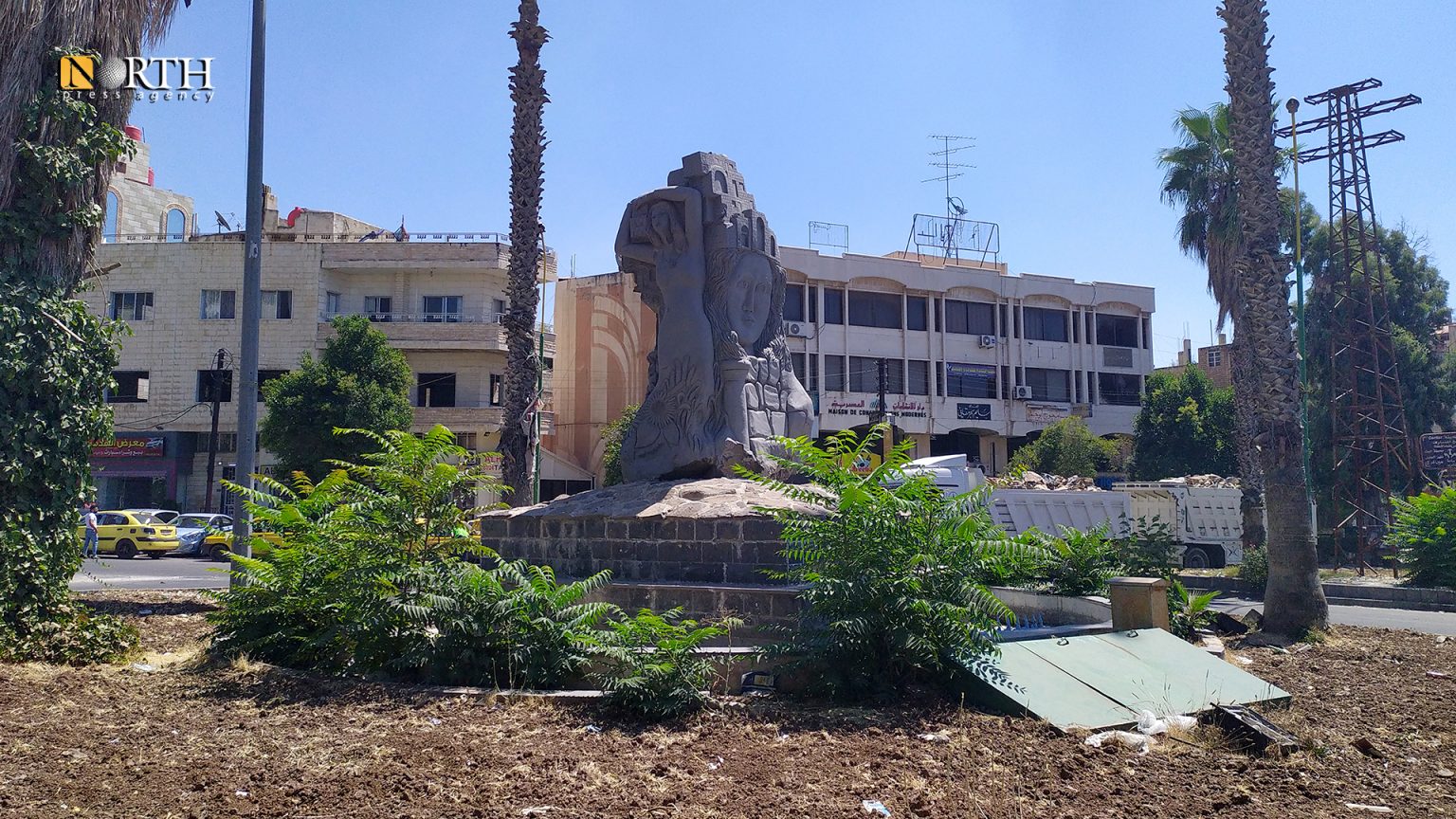SUWAYDA, Syria (North Press) – In order not to be involved in killing Syrians, the 30-year-old Maher al-Tawil, a pseudonym for a resident of Shahba town, north of Suwayda, south Syria, travelled to Lebanon in turn for $1400.
Al-Tawil told North Press that he is wanted by the government forces to perform the compulsory military service the reason that has urged him to immigrate.
He paid $600, which he obtained after selling his land, to the checkpoints and cars to get out of his homeland.
Al-Tawil recognized a broker through his relatives “they sent me a phone number of a person who coordinate with the security authorities.”
“A security car drove us from Suwayda to Damascus then Homs, the checkpoints along the road have facilitated measures without checking our documents.”
People who manage to enter Lebanon work in building and restaurants; some of them temporarily stay because they often head to Europe.
Suwayda has been marginalized, where the resources of development and economic are about to be vanished for more than 40 years, an activist told North Press under condition of anonymity.
Consequently, the illegal immigration is the only choice for the young men, who live difficult living conditions, to flee Suwayda and get in Lebanon through Wadi Khaled with security protection.
Leaving University seats
In September 2021, the 22-year-old Ihab Redwan, a pseudonym for a resident of Suwayda, left the city and resorted to Lebanon because he was wanted by the security apparatuses for engaging in a demonstration in 2020.
“Security chaos and economic deterioration policies to evacuate the area urge the people to resort to illegal immigration,” Redwan said.
Redwan, who was a third year student in the Faculty of Mechanical Engineering, describes the situation in his country as “A country without future,” where one can postpone the performance of military service during years of study, but after graduating he is obliged to join it.
He managed to travel after his mother sold her gold jewelries.
Unidentified future
The 24-year-old Saqr Shqeir, a pseudonym for a resident of al-Qrayya town south of Suwayda, traveled in August 2021 after he offered a sum of money which differs according to difficulties of the route.
“Safe routes are more expensive than the dangerous ones,” Shqeir said.
“The easy routes cost $600 for a person, while the rugged ones cost $250 where the traveler has to climb dangerous mountains surrounded by Syrian government forces and Lebanese army checkpoints,” he added.
Shqeir pointed out that the youth are forced to choose the most dangerous roads, as they do not have enough money, since getting passport costs them a lot.
“They get the passport illegally from the Syrian embassy in Lebanon at $800.”
The suffering is not limited to the costs and smugglers’ exploitation or risking their lives, but also kidnapping and being arrested, “the fear of handling us to the government exists.”
In case they are being arrested while crossing illegally, they are detained in the security branches affiliated with the Syrian government forces, before join the military service.
Money for freedom
Media reports note to illegal crossing points between Syria and Lebanon that are exploited by various parties related to the government and the Lebanese Hezbollah for smuggling people in exchange for huge sums of money.
The 27-year-old Rami Sa’di, a pseudonym for a man of Suwayda, said kidnapping and arrest are pre-planned by the smugglers or by the members of the checkpoints.
The kidnappers are local gangs of the border areas in Syria, particularly Homs countryside, and in Lebanon. The gangs have close connection with the security forces and only demand financial ransoms.
In April 2021, two young men from Nimrah village in the northeastern countryside of Suwayda were kidnapped and the kidnappers demanded $10,000 in exchange for their release.
“Two weeks ago, two young men were kidnapped as soon as they get in Homs,” Sa’di said.
“Families of the kidnapped paid $7,200 to the kidnappers for their release.”
Rayan Ma’rouf, director of Suwayda 24 news website, said ten cases of kidnapping were registered in Homs countryside on the border area. All of the ten people were released in exchange for financial ransoms.

